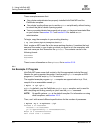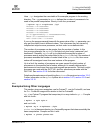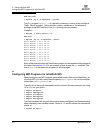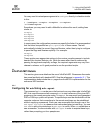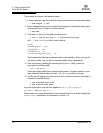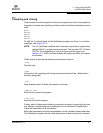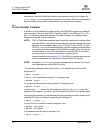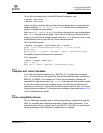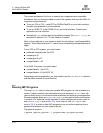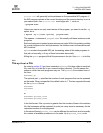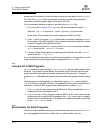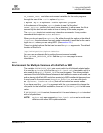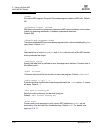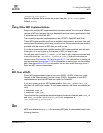
3 – Using InfiniPath MPI
InfiniPath MPI Details
3-10 IB6054601-00 D
Q
The current workaround for this is to compile on a supported and compatible
distribution, then run the executable on one of the systems that uses the GNU 4.x
compilers and environment.
■ To run on FC4 or FC5, install FC3 or RHEL4/CentOS on your build machine.
Compile your application on this machine.
■ To run on SLES 10, install SUSE 9.3 on your build machine. Compile your
application on this machine.
■ Alternatively, gcc can be used as the default compiler. Set mpicc -cc=gcc as
described in section 3.5.3 "To Use Another Compiler".
Next, on the machines in your cluster on which the job will run, install compatibility
libraries. These libraries include C++ and Fortran compatibility shared libraries and
libgcc.
For an FC4 or FC5 system, you would need:
■ pathscale-compilers-libs (for FC3)
■ compat-gcc-32
■ compat-gcc-32-g77
■ compat-libstdc++-33
On a SLES 10 system, you would need:
■ compat-libstdc++ (for FC3)
■ compat-libstdc++5 (for SLES 10)
Depending upon the application, you may need to use the -W1,-Bstatic option to
use the static versions of some libraries.
3.5.5
Running MPI Programs
The script mpirun lets you start your parallel MPI program on a set of nodes in a
cluster. It starts, monitors, and terminates the node programs.
mpirun uses ssh
(secure shell) to log in to individual cluster machines and prints any messages that
the node program prints on stdout or stderr on the terminal from which mpirun
is invoked. It is therefore usually desirable to either configure all cluster nodes to
use shosts.equiv (see section 2.9), or for users to use ssh-agent (see
section 3.5.1) in order to allow MPI programs to be run without requiring that a
password be entered for each node in the job.
The general syntax is:
$ mpirun [mpirun_options...] program-name [program options]



